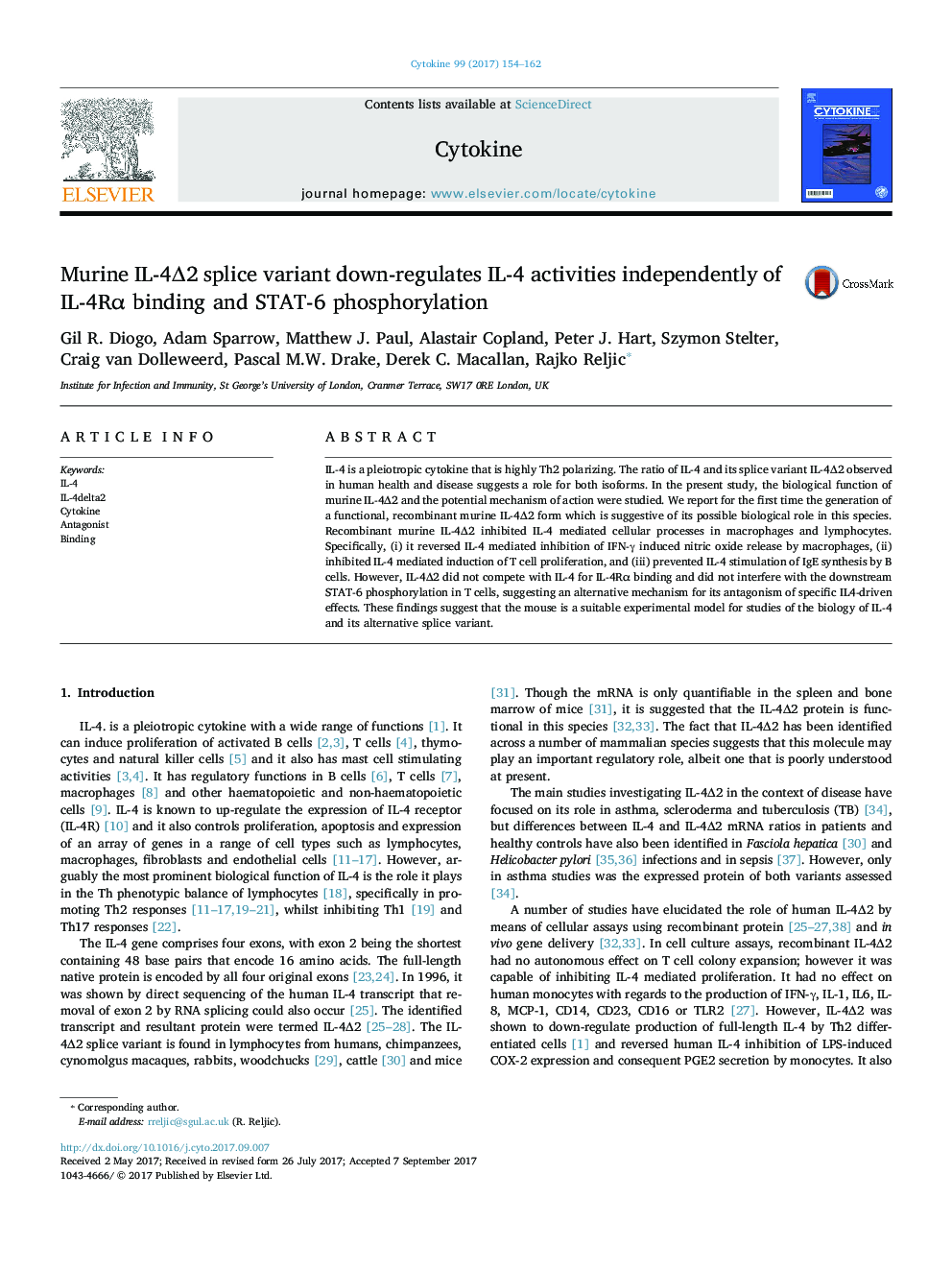| Article ID | Journal | Published Year | Pages | File Type |
|---|---|---|---|---|
| 5586837 | Cytokine | 2017 | 9 Pages |
Abstract
IL-4 is a pleiotropic cytokine that is highly Th2 polarizing. The ratio of IL-4 and its splice variant IL-4Î2 observed in human health and disease suggests a role for both isoforms. In the present study, the biological function of murine IL-4Î2 and the potential mechanism of action were studied. We report for the first time the generation of a functional, recombinant murine IL-4Î2 form which is suggestive of its possible biological role in this species. Recombinant murine IL-4Î2 inhibited IL-4 mediated cellular processes in macrophages and lymphocytes. Specifically, (i) it reversed IL-4 mediated inhibition of IFN-γ induced nitric oxide release by macrophages, (ii) inhibited IL-4 mediated induction of T cell proliferation, and (iii) prevented IL-4 stimulation of IgE synthesis by B cells. However, IL-4Î2 did not compete with IL-4 for IL-4Rα binding and did not interfere with the downstream STAT-6 phosphorylation in T cells, suggesting an alternative mechanism for its antagonism of specific IL4-driven effects. These findings suggest that the mouse is a suitable experimental model for studies of the biology of IL-4 and its alternative splice variant.
Keywords
Related Topics
Life Sciences
Biochemistry, Genetics and Molecular Biology
Endocrinology
Authors
Gil R. Diogo, Adam Sparrow, Matthew J. Paul, Alastair Copland, Peter J. Hart, Szymon Stelter, Craig van Dolleweerd, Pascal M.W. Drake, Derek C. Macallan, Rajko Reljic,
